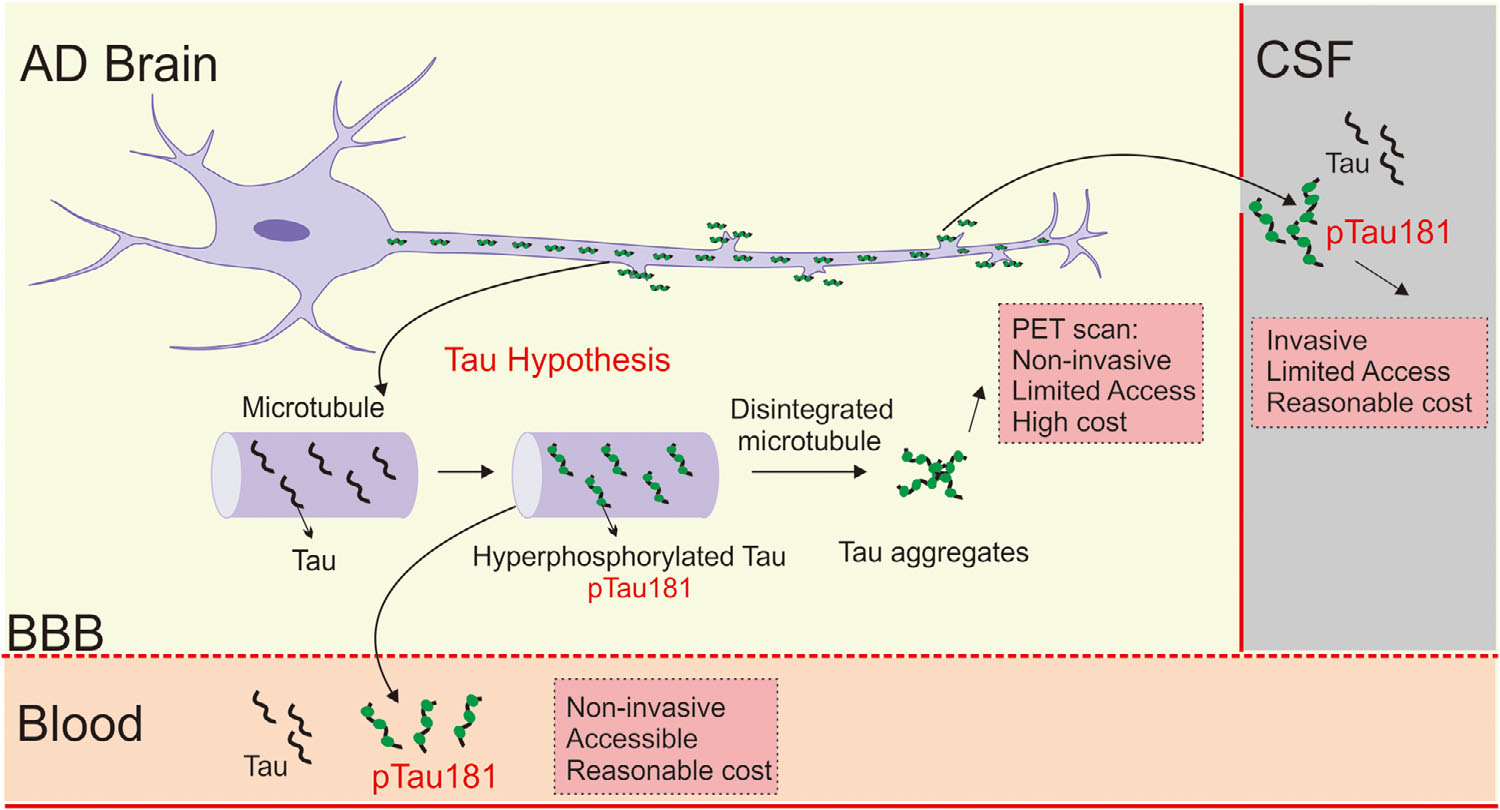Alzheimer's disease (AD) is one of the most difficult neurological disorders, because there are no means of biomarkers to predict the disease progression, nor is there a cure. Recently, on Nature Medicine, Thijssen et al and Janelidze et al reported an advanced diagnostic biomarker, plasma pTau181, for Alzheimer's disease.

Presently, two pathological hallmarks of AD, amyloid plaques and tangles (which were formed by amyloid‐β, Aβ, and tau), can be visualized by positron emission tomography (PET), and Aβ or tau levels in cerebrospinal fluid (CSF) and plasma can be measured. However, the approved methods, with their disadvantages of high cost and relative invasiveness, are more for diagnosis rather than disease prediction. Development of a blood‐based test for AD that can be used as a biomarker as well as a diagnostic tool would be ideal and is critical for drug development. Thijssen et al and Janelidze et al have collectively discovered an advanced diagnostic biomarker, plasma pTau181, for Alzheimer's disease. Such blood test is less invasive and costly compared to the current gold standard, PET imaging, and CSF sample testing (Fig. 1), which may significantly facilitate our future investigations on drug development for Alzheimer's disease.
 Fig. 1 The potential of plasma tau as Alzheimer's disease (AD) biomarker.
Fig. 1 The potential of plasma tau as Alzheimer's disease (AD) biomarker.
Article Access: https://onlinelibrary.wiley.com/doi/10.1002/mco2.1
Website for MedComm: https://onlinelibrary.wiley.com/journal/26882663
Looking forward to your contributions.







